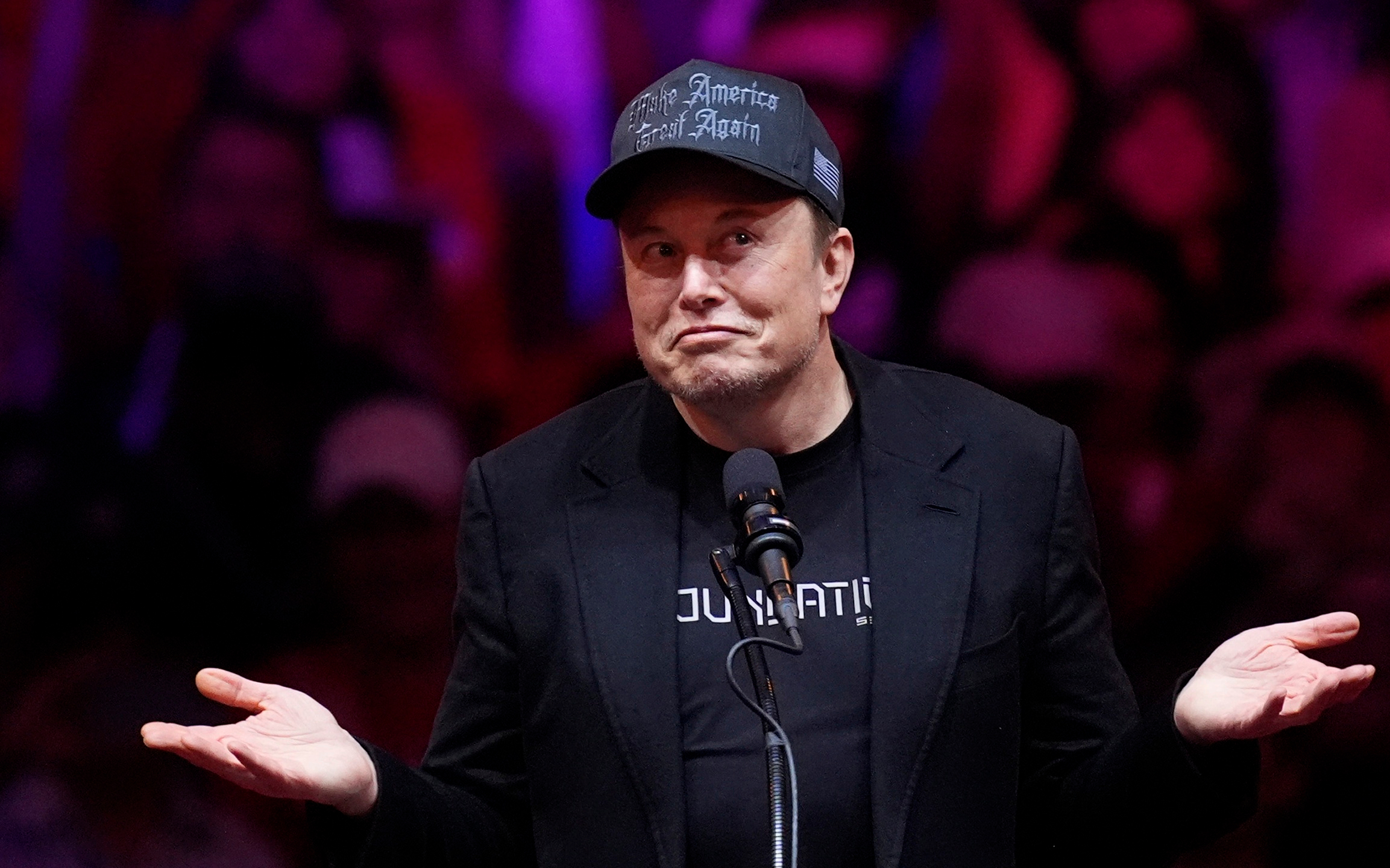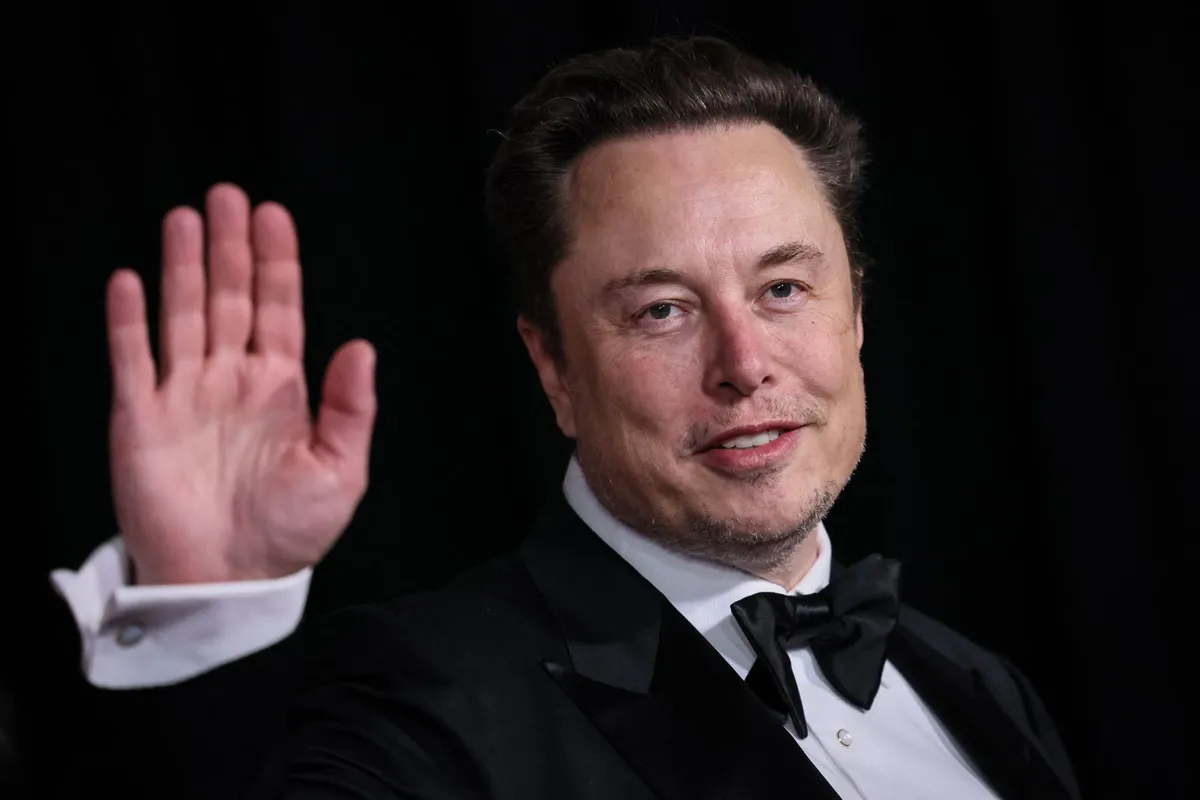Canada ‘Strangles’ Starlink, Slashes $15M in Subsidies Over Feud with Elon Musk.

In a dramatic escalation of hostilities between Canada and Elon Musk, the Canadian government is pulling the plug on millions of dollars in federal subsidies to Starlink, Musk’s satellite internet service. The move, driven by intense lobbying from Bell Canada and fueled by political fallout from Musk’s alignment with U.S. President Donald Trump, signals a striking shift in how one of the world’s most innovation-friendly countries is choosing to treat one of the world’s most influential tech moguls.
The cut—estimated to be worth at least $15 million over five years—targets subsidies intended to support broadband deployment in Canada’s most remote and underserved regions. The Canadian Radio-television and Telecommunications Commission (CRTC) had proposed a subsidy of $25 per month per subscriber in the Far North, an area that includes Yukon, the Northwest Territories, and Nunavut.
These areas face some of the most severe connectivity challenges in North America due to geography and population dispersion.

At first glance, Starlink appeared to be a perfect fit for these isolated communities, with its constellation of low-Earth orbit satellites capable of delivering high-speed internet where fiber optics can’t reach. However, that vision is now in jeopardy, as Canada’s biggest telecom players and political powers unite in an unprecedented effort to block Musk’s satellite empire from reaping public dollars.
At the center of this dispute is Bell Canada, the country’s largest telecommunications provider, and its northern division, Northwestel. The company has filed an aggressive intervention with the CRTC, arguing that Starlink should not be eligible for any subsidy money due to its national flat-rate pricing model.
Unlike traditional ISPs, which often charge more to serve remote areas due to the increased infrastructure and maintenance costs, Starlink charges Canadian customers a single price—$140 CAD per month for residential service and $189 CAD for roaming service—regardless of their location.
Bell argues that this pricing structure disqualifies Starlink from receiving government subsidies, which were designed to help providers offset the unique costs of bringing service to remote communities.

“If this subsidy is extended to Starlink, it would be in spite of the fact that Starlink incurs no unique costs to serve the Far North than it does anywhere else in Canada,” Bell said in an official intervention obtained by Fortune. “We propose that no ISP that offers national pricing should be eligible for subsidy.”
Bell further warns that subsidizing Starlink would create a perverse market dynamic in which consumers in more populated southern Canada would be indirectly helping to fund Musk’s operations in the North. “This outcome is against the purpose of the proposed subsidy,” Bell added.
The math behind the subsidy cut is simple but consequential. The proposed subsidy would amount to $300 per year for each Starlink subscriber in the Far North. With an estimated 42,000 households in that region and a projected market penetration of 25% by Starlink—based on its current popularity and lack of alternatives—that equates to roughly 10,500 customers.
Multiply that by $300 annually and you get $3.15 million a year. Over five years, that’s nearly $15.75 million—a major blow to a company that has aggressively expanded into rural markets across North America. And while that sum might seem modest for a Musk-led enterprise, it’s a strong symbolic rejection in a country that once supported Musk’s initiatives.
This move doesn’t exist in a vacuum. It comes amid a sharp downturn in Canada’s political and public support for Musk and his companies. The tipping point appears to be Musk’s increasing political ties to Donald Trump, who has openly antagonized Canada on trade and sovereignty.
Earlier this year, Trump reignited trade tensions by imposing tariffs on Canadian goods and making inflammatory remarks about annexing Canada as the “51st state.” Shortly afterward, Ontario Premier Doug Ford canceled a $100 million provincial contract with Starlink, stating, “We won’t award contracts to people who enable and encourage economic attacks on our province and our country.”
Quebec followed suit, declaring it would not renew its subsidy partnership with Starlink this summer. These political gestures have created a snowball effect that is now manifesting in national policy decisions. The CRTC’s upcoming ruling may be administrative in nature, but its implications are undeniably political.
Adding fuel to the fire is a growing movement among Canadian citizens who are fed up with Musk’s perceived disregard for Canadian interests. A petition demanding the revocation of Musk’s honorary Canadian citizenship has garnered more than 300,000 signatures. The petition accuses Musk of acting contrary to Canada’s values and national security.

Critics say Musk’s public support for Trump, controversial behavior on social media, and increasing entanglement in U.S. politics make him a dangerous figure to subsidize with Canadian taxpayer money. Others worry about the precedent being set if foreign billionaires can tap into public funds without accountability or oversight.
Despite the political drama, the biggest losers in this battle may be the very communities the subsidies were intended to help. In places like Yukon and Nunavut, traditional internet services are unreliable, overpriced, or simply unavailable. Starlink’s satellite technology has offered a revolutionary alternative, delivering broadband to homes, schools, and healthcare facilities that were previously disconnected.
The Yukon government has said publicly that Starlink remains the most viable option for its residents, even as it explores other possibilities. If the company is denied subsidies, it may either raise prices in those regions or reduce investment—both of which would disproportionately hurt the people living there.
While Bell and other traditional ISPs have pledged to improve service in remote communities, their progress has historically been slow and often limited in scope. Critics argue that the move to shut out Starlink is less about protecting consumers and more about defending corporate monopolies.

What’s unfolding in Canada could be a harbinger of global trends. As Starlink and similar satellite networks grow in reach, traditional ISPs are feeling the heat. The telecom industry is lobbying governments to restrict access to subsidies, arguing that companies like Starlink, which operate at global scale, shouldn’t receive the same support as localized service providers.
This raises complex questions: Should a company’s innovation and efficiency disqualify it from public funding? Or should governments prioritize the fastest and most reliable service for underserved populations, regardless of the provider’s business model?
The answers may vary by country, but in Canada, the message is clear: political loyalty, national interest, and economic nationalism are taking precedence over raw connectivity.
The CRTC has yet to issue a final decision on the subsidy issue, but most industry watchers expect the commission to side with Bell and the federal government. With both provincial and public pressure mounting, Starlink’s future in Canada is looking uncertain.
What’s at stake isn’t just a subsidy, or even access to high-speed internet—it’s the principle of who gets to shape the future of infrastructure in a digital age. In this battle of tech versus telecom, of innovation versus politics, and of Elon Musk versus Canada, the outcome will set a precedent far beyond the frozen North.
News
MSNBC thought they could destroy Katie Phang’s career by canceling her weekend show, but Rachel Maddow was never going to let her friend fall into ruin. Under the protection of the person who MSNBC wouldn’t dare touch, Phang quickly attracted hundreds of thousands of viewers with her very first YouTube video after leaving the network. The MSNBC executives promptly extended her a new job offer—but Phang’s self-assured response left them humiliated.
You ever see someone get fired and then become 10x more powerful the minute they walk out the door? Yeah,…
SHOCK : ABC IN CRISIS: The View Yanked Off Air After Explosive Confrontation With Tyrus—Network Refuses to Explain Vanishing Act as Fans Demand to Know What Was Said When the Cameras Went Dark
Okay, so… what the actual hell just happened at The View? One second they’re doing their usual morning chaos—Joy snarking,…
THIS JUST HAPPENED: Karoline Leavitt calls Brittney Griner a ‘shit’ after discovering the truth about her gender. In a surprising and controversial move, the Women’s National Basketball Αssociation (WNBΑ) has announced that it will implement mandatory sex testing for all players starting next season. This decision comes amid discussions surrounding gender identity and inclusivity in women’s
Alright y’all, buckle up, because this isn’t just some spicy locker room drama. No no, this is the kind of…
Karoline Leavitt Drops One Line That Leaves The View in Total Shock — Even the Hosts Froze. It wasn’t loud. It wasn’t angry. It was cold, sharp, and straight to the point. One sentence — that’s all it took for Karoline to say what millions have been thinking for years.
Title: Karoline Leavitt vs. The View — And the One-Liner That Nuked Daytime TV Whew. Somebody hand Whoopi a glass…
FOX News Goes Full Savage: Jesse Watters Leads Ruthless Multi-Billion Dollar War to Annihilate CBS, ABC, and NBC in the Most Shocking Media Power Grab of the Decade—Legacy Networks Are Panicking, and the Future of TV May Never Be the Same
Alright y’all, buckle up because this ain’t your average cable news drama. FOX News didn’t just throw hands with the…
“IS BRITTNEY GRINER A MAN?!”—Viral Video Ignites FIRESTORM, Fans Lose It Over Bizarre Clip!
Brittney Griner, WNBA star and outspoken advocate, is no stranger to controversy — but her latest social media post has…
End of content
No more pages to load












